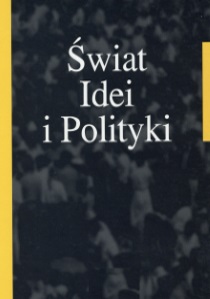Essay About The Province (Notes About the Lack of Power in Modern Russia)
DOI:
https://doi.org/10.34767/SIIP.2019.18.18Keywords:
discourse, legitimation, power, political space, province, Russia, Russian cultureAbstract
In this article, the author using sketches of Russian culture, tries to understand, how institutions of power can function in the Russian province, and how they can be perceived by the society. The power is distributed unevenly, and this has a full effect on its deficit in relation to provincial political discourse. The Russian example is not an exception. From the author’s point of view, modern practices may have significant cultural grounds, hiding in a special relation to the province, which traditionally accompanied political discourse. The author sees this attitude in various sketches from the texts of Aleksandr Pushkin, Andrey Platonov, Anton Chekhov, Ivan Bunin and other Russian classics. The author’s interpretation of the problem required an appeal to the theoretical works of political philosophers, such as Giorgio Agamben, Albert Camus, Niklas Luhmann, Michel Foucault and Max Scheler. The author believes that in the space of the Russian province there is an objective deficit of institutions of power, which speaks, on the one
hand, of a certain disregard for the province, and, on the other hand, testifies to the strength of resistance to local initiatives and legal nihilism that has become part of the political philosophy of the Russian provincial. In turn, the provision of a person to himself, affects a fairly critical attitude toward the political power. A person is not more capable of trusting the authorities and seeking support from them. His being increasingly assumes an existential character. The policy of the federal government in modern Russia gives rise to serious gaps between the center and the province, which can forms affect the specific perception of power itself, and also affects the formation of anarchic attitudes.
References
Agamben, D. (2011). HomoSacer. Suverennaya vlast’ i golaya zhizn’ [HomoSacer. Sovereignty and a bare life], Moscow: Izdatel’stvo «Evropa».
Assman, A. (2016). Novoe nedovol’stvo material’noj kul’turoj [New dissatisfaction with material culture], Moscow: Novoe literaturnoe obozrenie.
Bakhtin, M.M. (1975). Voprosy literatury i ehstetiki [Questions of literature and aesthetics], Мoscow: Hudozhestvennaya literatura.
Bakhtin, M.M. (2017). Problemy poehtiki Dostoevskogo [Problems of Dostoevsky’s poetics]. Saint Petersburg: Azbuka-klassika.
Bart, R. (1989). Izbrannye raboty. Semiotika. Poehtika [Selected works. Semiotics. Poetics], Moscow: Progress. Univers.
Blok, A.A. (1962). Sobranie sochinenij v 8 tomah. T. 5 [Collected Works in 8 volumes], Moscow: Gosudarstvennoe izdatel’stvo hudozhestvennoj literatury.
Bukovskij, V. (1990). «I vozvrashchaetsya veter…». Pis’ma russkogo puteshestvennika [And the wind returns. Letters of the Russian traveler], Moscow: Demokraticheskaya Rossiya.
Bunin, I.A. (1991). Okayannye dni [Cursed days], Moscow: Molodaya gvardiya.
Fukuyama, F. (2017). Sil’noe gosudarstvo [Strong state], Moscow: AST: AST.
Isaev, I.A. (2003). Politica Hermetica: skrytye aspekty vlasti [Politica Hermetica. Hidden aspects of power], Moscow: Yurist.
Kamyu, A. (1998). Iznanka i lico [The Wrong Side and the Right Side], Moscow: EHKSMO-Press; Har’kov: Folio.
Kolchin, P. (2003). American Slavery. 1619–1877. New York: Hill and Wang.
Lotman, Yu. (2017). Besedy o russkoj kul’ture. Byt i tradicii russkogo dvoryanstva (XVIII – nachalo XIX veka) [Conversations about Russian culture. Life and traditions of the Russian nobility (XVIII – early XIX century)], Saint Petersburg: Azbuka.
Luhmann, N. (2001). Vlast’ [The Power], Moscow: Praksis, 2001.
Lyubbe, G. (2016). V nogu so vremenem. Sokrashchyonnoe prebyvanie v nastoyashchem [Keep up with the times. Short stay in the present], Moscow: Izd. Dom Vysshej shkoly ehkonomiki.
Nilsen, F.S. (2004). Glaz buri [Eye of the storm], Saint Petersburg: Aletejya.
Nort, D., Uollis, D., Vajngast, B. (2011). Nasilie i social’nye poryadki. Konceptual’nye ramki dlya interpretacii pis’mennoj istorii chelovechestva [Violence and social order. Conceptual framework for interpreting the written history of humanity],Moscow: Izdatel’stvo Instituta Gajdara.
Pasternak, B. (1989). Doktor ZHivago [Doctor Zhivago], Moscow: Knizhnaya palata, 1989.
Platonov, A. (1995). Vzyskanie pogibshih [Recovery of the dead], Moscow: School Press.
Segela, Z. (1999). Nacional’nye osobennosti ohoty za golosami. Tak delayut prezidentov [National features of the hunt for votes. So do presidents], Moscow: Vagrius.
Shmeman, A. (2017). Osnovy russkoj kultury. Besedy na Radio Svoboda. 1970–1971.[Fundamentals of Russian culture. Conversations on Radio Liberty. 1970–1971]. Moscow: Izdatel’stvo Pravoslavnogo Svyato-Tikhonovskogo gumanitarnogo instituta.
Skiperskikh, A. (2016). Pain as an Experiment. «Rebellious Man» in Dostoevsky`s Works. Voprosy literatury 5, pp. 176–190.
Skiperskikh, A. (2018). The Russian Province: the Practice of Overcoming the Power Deficit. Środkowoeuropejskie Studia Polityczne 4, pp. 135–153. DOI: http://dx.doi.org/1014746/ssp/2018.4.7
Todorov, C. (2010). Duh Prosveshcheniya [Epoch of enlightenment], Moscow: Moskovskaya shkola politicheskih issledovanij.

